Planets
-
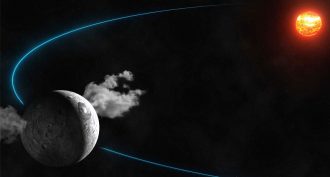
-
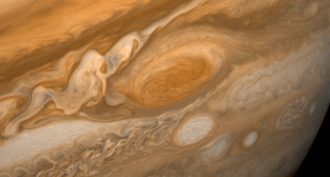 Planets
PlanetsJupiter’s long-lasting storm
Most studies of Jupiter’s centuries-old Great Red Spot suggest this giant storm should have petered out after a few decades. A new study traces the storm’s staying power to the vertical movement of its gases.
-
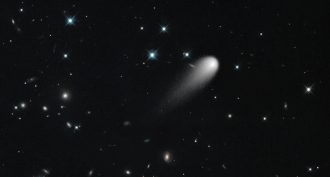 Planets
PlanetsThe comet that came in from the cold
Comet ISON is hurtling toward the sun at breakneck speed. During this first (and possibly last) trip around the sun, it will either shoot back into space or be torn apart.
-
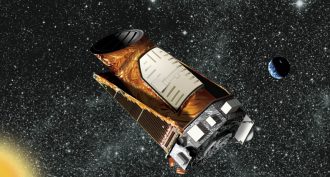 Planets
PlanetsSo many ‘Earths’
A new analysis suggests humans are not alone in the universe. Our galaxy alone may host billions of Earth-like planets, ones able to support life as we know it.
By Andrew Grant -
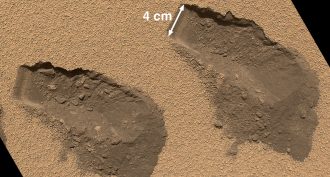 Planets
PlanetsScratching the Martian surface
What’s Mars made of? Volcanic rock, glassy particles and a poisonous rocket-fuel chemical, among other things. That’s the latest from tests by NASA’s Curiosity rover.
-
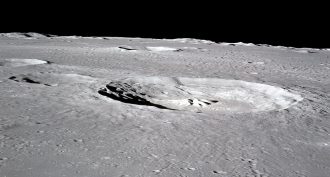 Planets
PlanetsSeeing the moon’s water
Rocky details of our moon can be gleaned without the aid of visiting astronauts. The latest example: An orbiting spacecraft may have just spotted water locked within surface rocks.
By Sid Perkins -
 Planets
PlanetsOut-of-this-world atmospheres
Light from a distant, giant world offers clues to the gases in its atmosphere.
-
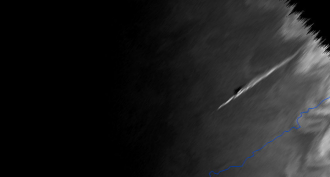
-
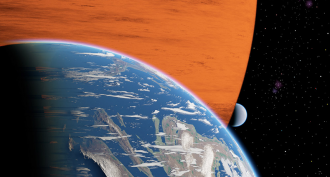 Planets
PlanetsHome on the moon
Astronomers say rocky moons orbiting distant planets might support alien life.
-
 Planets
PlanetsIce on Mercury
MESSENGER spacecraft provides evidence for frozen water on planet closest to sun.
-
 Planets
PlanetsA diamond planet?
Distant, carbon-rich world could contain one-third its weight in gems that are relatively rare on Earth.
By Sid Perkins -
 Planets
PlanetsNew planetary neighbor
Nearest star system has a world that's Earthly in size, but too hot for human visitors.